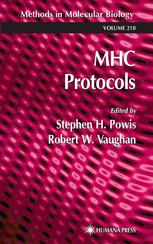

Most ebook files are in PDF format, so you can easily read them using various software such as Foxit Reader or directly on the Google Chrome browser.
Some ebook files are released by publishers in other formats such as .awz, .mobi, .epub, .fb2, etc. You may need to install specific software to read these formats on mobile/PC, such as Calibre.
Please read the tutorial at this link: https://ebookbell.com/faq
We offer FREE conversion to the popular formats you request; however, this may take some time. Therefore, right after payment, please email us, and we will try to provide the service as quickly as possible.
For some exceptional file formats or broken links (if any), please refrain from opening any disputes. Instead, email us first, and we will try to assist within a maximum of 6 hours.
EbookBell Team

4.3
88 reviewsMany of the genes found in the human major histocompatibility complex (MHC:HLA region) are subject to extreme polymorphism. HLA polymorphism has been used extensively in solid organ and bone marrow transplantation to match donors and recipients. Many MHC genes also have significant disease association and play a pivotal role in the control of immune response. In MHC Protocols, leading experts detail readily reproducible methods for identifying these polymorphisms in the human MHC. Described in step-by-step detail to ensure robust and successful experimental results, these techniques provide DNA-based protocols for the study of polymorphism in HLA class I and II genes and in non-HLA HMC genes associated with human disease (TAP1, TAP2, C2, C4, and TNF-a). The authors also describe methods for accessing HLA sequence data from electronic databases designed to catalog HLA-region genes and their alleles. Each method is written by an investigator who has used the technique extensively and includes troubleshooting tips and notes on pitfalls to avoid.
Comprehensive and highly practical, MHC Protocols offers both experienced and novice investigators not only a state-of-the-art overview of this dramatically evolving area of immunology, but also a reliable guide to the identification of MHC gene polymorphisms.